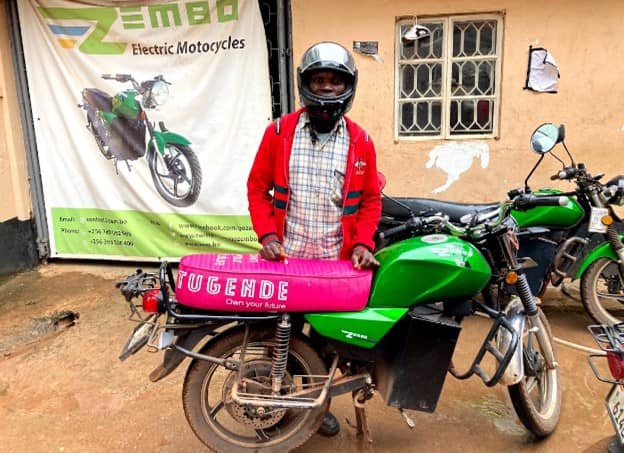By Denis Jjuuko
Last week, two companies with operations in the country organised a small event that largely went unnoticed. At the event, the chief executive of the telecom company received a fully electric car from a car dealer. The telecom has joined a few other organizations in Uganda that are starting to green their mobility. A few hotels and recreation centres have been operating fully electric golf carts for a while but like the news event mentioned above, they are largely unnoticed.
Does this signal the future of fully electric cars in Uganda? Perhaps it is a starting point. If you believe in symbolism. The telecom may be testing the depth of the river at least with one foot. If plans go well, we could see the company transitioning to green mobility. Already, telecom masts are being powered by solar thereby reducing their carbon footprint. But getting into cars is a big step forward that could make a significant impact on the economy.
If companies go into fully electric vehicles, they will reduce their reliance on fossil fuels but also significantly reduce the cost of doing business. Most importantly, fully electric vehicles need the charging infrastructure and professionals to work on them. Mechanics will have to upgrade their skills and so are drivers. Ugandans will have to overcome the fear of the unknown. So electric vehicles will require us to plan our trips better.
In many western countries, deadlines have been set for the transition to electric vehicles. Many are looking at 2030 as a deadline to shift to these technologies. Forwarding looking companies are not waiting for 2030 or whatever deadline Africa will set (most likely internal combustion engines will just become obsolete) and then start scrapping around for electric cars. They are starting now to manage the transition so that by the time internal combustion engines become outdated, they are already in a position of strength.
The government needs to do the same by starting to switch to electric vehicles so that it isn’t caught up in a race against time to electrify its fleet. I believe that at one stage, aid (or is it called budget support nowadays?) will be tagged on how electrified the government fleet is. For about three years, the Uganda Civil Aviation Authority used Kiira Motors’ electric buses transporting its staff between Entebbe and Namboole. The buses were fine. Can’t this be piloted all over Kampala?
Yet unbelievable as it may sound, the boda boda industry is shoulders above everyone when it comes to electric mobility. Some entrepreneurs have been turning boda bodas into electric ones and have set up battery exchange centres in many parts of Kampala. What can we learn from the bodas?
Uganda entrepreneurs who love setting up fuel stations should be looking at this sector. If telecoms, religious and development organisations are starting to buy fully electric vehicles, who is going to repair and maintain them? Outside their offices, where will they charge from? Who will drive them?
Is the Uganda National Road Authority working on roads with electric vehicles in mind? Because of batteries, electric vehicles are heavier than other vehicles which may put a strain on road infrastructure if the transition isn’t planned well.
When we discovered oil, our universities rushed to start oil and gas academic programmes. I am not sure how far they are on electric mobility MBAs. Yet the mobility sector is huge in terms of creating and sustaining jobs. Mobility is a big driver of economic growth.
As we learn from Bodas and a few forward-thinking organisations, the United States, European Union, and China are positioning themselves for a war on batteries for electric vehicles. The US is providing incentives for battery makers that are unsettling the European Union and China.
Meanwhile, China which has built significant capacity in this sector, has acquired more than 40 percent of cobalt in the Democratic Republic of Congo (DRC). Cobalt is very crucial in making batteries.
Africa has a lot of minerals that are crucial for the automotive industry but we are net importers. As other countries are positioning themselves to take advantage of electric mobility, we are busy giving our minerals away.
We are happy to claim that industrialization isn’t our comparative advantage. How did China gain this comparative advantage? They only became serious about 45 years ago. We claim that agriculture is our thing but we go to Russia to beg to allow Ukraine, a country at war, to feed us. Africa again is giving away its resources for others to develop. We have an abundance of rare earth minerals in Busoga yet the region is one of the poorest in the country. We should be dominating electric vehicles and we still have a small window to do so.
The writer is a communication and visibility consultant. djjuuko@gmail.com










